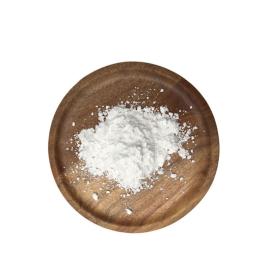EGFR mutation lung cancer first-line treatment of new options! The combination therapy of cyramza and erlotinib was approved by FDA advisory committee!
-
Last Update: 2020-02-27
-
Source: Internet
-
Author: User
Search more information of high quality chemicals, good prices and reliable suppliers, visit
www.echemi.com
February 27, 2020 / BIOON / -- Eli Lilly recently announced that the U.S Food and Drug Administration (FDA) cancer Based on the results of phase III study, the first-line treatment of EGFR mutation positive metastatic non-small cell lung cancer (NSCLC) with anti VEGFR monoclonal antibody cyramulumab and erlotinib is beneficial / risky During the drug review process, the Advisory Committee provides FDA with independent opinions and suggestions from external medical experts FDA is not obliged to follow Advisory Committee recommendations, but it does so often Cyramza is an anti VEGF-2 monoclonal antibody, erlotinib is a tyrosine kinase inhibitor (TKI), targeting to inhibit EGFR kinase activity The combination of two drugs, VEGFR and EGFR pathway, is expected to provide a new first-line treatment option for NSCLC patients with metastatic EGFR mutation Lilly also filed regulatory filings outside the United States, according to data from the relay study In January 2020, the European Commission (EC) approved cyramza combined with erlotinib as a first-line treatment for adult patients with metastatic NSCLC carrying EGFR activated mutations In Japan, the combination therapy is under review and the results are expected in the second half of 2020 Relay is a global, randomized, double-blind, placebo-controlled phase III study that evaluated the presence of EGFR exon 19 deletion or exon 21 (L858R) alternative mutations in tumors of patients with metastatic NSCLC treated with cyramza plus erlotinib versus placebo plus erlotinib Since 2015, 449 patients in North America, Europe and Asia have been randomly assigned The primary end point was progression free survival (PFS), and the secondary end points included safety, remission rate, overall survival (OS), and patient reported outcomes The results showed that the study reached the primary end point: compared with placebo + erlotinib group (n = 225), cyramza + erlotinib group (n = 224) prolonged disease progression free survival (PFS) by 7 months, with statistically and clinically significant improvement (median PFS: 19.4 months vs 12.4 months; HR = 0.59, 95% CI: 0.46-0.79, P < 0.0001) In addition, improvements in cyramza + erlotinib therapy were consistently observed at all secondary and exploratory endpoints, including duration of remission, second progression time of disease (pfs2), and duration of targeted therapy There was also sustained improvement in all assigned subgroups, including cancer patients with exon 19 and exon 21 mutations The total survival time (OS) is not mature at the time of data analysis, and the research will continue to advance until the final number of OS events is reached Targeted mutation plays a key role in the treatment of NSCLC T790M mutation is the most common mechanism for first-line treatment of acquired drug resistance in the first and second generation EGFR-TKI About 30% - 60% of patients have acquired the mutation in the course of disease progression In the relay study, the T790M mutation rate was similar among the treatment groups as the disease progressed In the study, the safety observed was consistent with the previous cyramza phase III clinical study and the established safety of erlotinib Compared with placebo + erlotinib treatment group, cyramza + erlotinib treatment group had a higher incidence (difference ≥ 5%) and the most common (incidence > 5%) level 3 and above adverse events were hypertension, acne like rash and diarrhea It is worth mentioning that the relax study is also the second phase III study to evaluate positive data from cyramza in the treatment of metastatic NSCLC In the previous phase III clinical trial, compared with placebo plus docetaxel, cyramza plus docetaxel significantly prolonged the overall survival period (OS) in patients with metastatic NSCLC who were treated with platinum containing chemotherapy during or after the progression of local advanced or metastatic diseases, reaching the primary end point of the study, as well as the secondary end point PFS and remission rate Data from the review study support the current indications of cyramza for second-line treatment of NSCLC Globally, lung cancer is the main cause of cancer-related deaths, and NSCLC is the most common type of lung cancer, accounting for 80% - 85% of all lung cancer cases There is no cure for metastatic NSCLC, the survival rate is low, and the disease progression after acquired drug resistance is still a difficult challenge Most patients will receive a variety of treatment options, while the first-line treatment options may affect patients' choice of follow-up therapy At present, tyrosine kinase inhibitor (TKI) is the standard choice for the treatment of EGFR mutant NSCLC Erlotinib and cyramza are the key drivers of tumor growth and development Erlotinib is a TKI, which can target to inhibit EGFR kinase activity; cyramza is an anti angiogenic therapy, targeting VEGF, which can block tumor blood supply In the United States, cyramza has been approved by the FDA Four different types of cancer were approved: (1) as single drug or combined with paclitaxel for advanced or metastatic geja patients during or after chemotherapy with fluorouracil or platinum; (2) combined with docetaxel for metastatic non-small cell lung cancer (NSCLC) patients during or after chemotherapy with platinum; (3) )The FOLFIRI regimen was used in patients with metastatic colorectal cancer (mCRC) who had previously received bevacizumab, oxaliplatin and fluorouracil or later; (4) as a single drug therapy, it was used in patients with liver cell carcinoma (HCC) who had AFP ≥ 400ng / ml and received sorafenib (BIOON Com) original source: FDA advisory committee votes in favor of Lily's cyramza ® (ramucirumab) as first line treatment for metastatic EGFR muted non small cell lung cancer
This article is an English version of an article which is originally in the Chinese language on echemi.com and is provided for information purposes only.
This website makes no representation or warranty of any kind, either expressed or implied, as to the accuracy, completeness ownership or reliability of
the article or any translations thereof. If you have any concerns or complaints relating to the article, please send an email, providing a detailed
description of the concern or complaint, to
service@echemi.com. A staff member will contact you within 5 working days. Once verified, infringing content
will be removed immediately.







